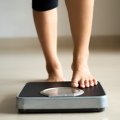Lesbian, gay and bisexual (LGB) Australians continue to experience significant disadvantage when it comes to health and wellbeing compared to their heterosexual peers, a University of Queensland study has found.
Dr Francisco Perales, of UQ’s Institute for Social Science Research, identified bisexual people as being at higher risk of poor outcomes compared to both heterosexual and gay/lesbian people.
“Disparities in health and wellbeing between gay/lesbian and heterosexual individuals were stable from 2012 to 2016,” Dr Perales said.
“In the same period, disparities between bisexual and heterosexual individuals widened for more than half of the indicators.”
The study also found that non-heterosexual women – particularly bisexual women – fared worse than non-heterosexual men.
“The combination of disadvantaged statuses could have a compounding effect on the health and wellbeing of this group,” Dr Perales said.
LGB disadvantage was more pronounced in domains such as mental health, emotional problems and social functioning, and less pronounced for physical functioning and substance abuse.
Dr Perales said the findings highlighted the importance of fully integrating sexual orientation in health policy and practice.
“They also underscore the need for further research that identifies the factors contributing to LGB disadvantage, including stigma and discrimination.”
The research was based on HILDA Survey data from 16,000 Australians.
It considered 20 different indicators of health and wellbeing, including physical and mental health, self-reported wellbeing and health behaviours.
Dr Perales is an Australian Research Council (ARC) Discovery Early Career Researcher Award fellow, and a Senior Research Fellow at the ARC Centre of Excellence for Children and Families over the Life Course.
The study is published in the Australian and New Zealand Journal of Public Health.
Media: Dr Francisco Perales, f.perales@uq.edu.au, +61 7 334 9964.
.jpg)










